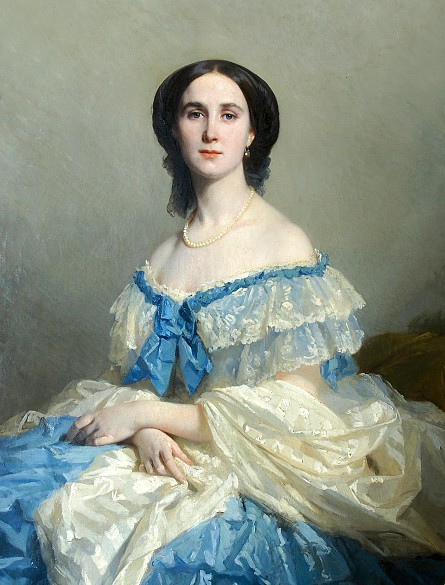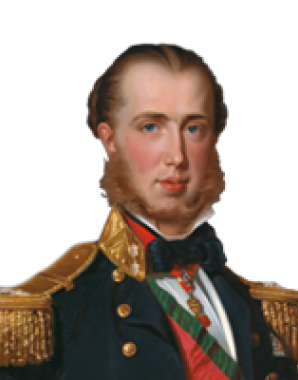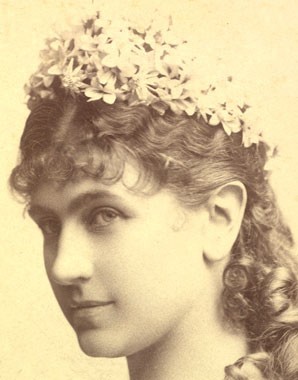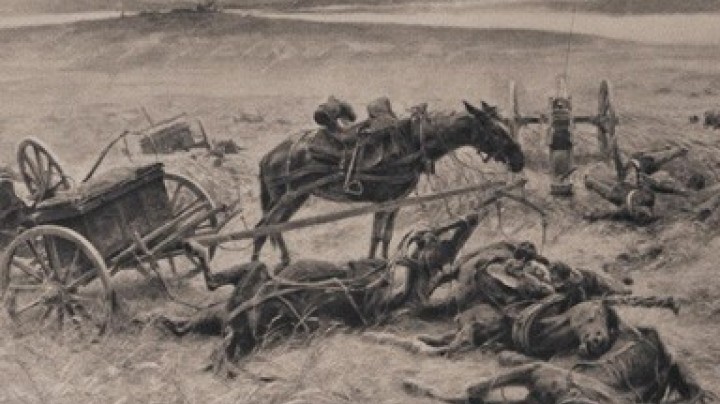To love and honour her, till death do you part?
The ‘dream partnership’ of Franz Joseph and Elisabeth was accompanied by numerous affairs and romantic attachments.
Elisabeth to her daughter Marie ValerieMarriage is a nonsensical institution. One is sold off as a fifteen-year-old child, taking an oath that one does not understand, cannot revoke and then regrets for thirty years or more.
The valet de chambre Anton Grill on Emperor Maximilian of MexicoThe Emperor’s bedchamber ... was visited by the most elegant ladies of the court, who arrived along mysterious paths and then made even more mysterious disappearances ... How many there were whom one would never have considered capable of such a misdemeanour and who still proved to be amenable to the Emperor’s wishes!
Affairs were nothing unusual amongst the high nobility, as marriages were mostly concluded on grounds of convenience and were far from guaranteeing lifelong fidelity and harmony. By contrast what was the case in the ideal of bourgeois marriage, extramarital affairs were no exception – debauchery on the part of the male family members was generally tolerated and indeed sometimes encouraged. Women – and here lay the double morality inherent in the matter – were not allowed the same measure of liberty in this regard.
Franz Joseph’s amours included ladies from aristocratic circles, from the theatre and from amongst the servants. These lovers received remunerations – aristocratic women who rendered ‘services’ to the Emperor were awarded honours and could even effect more speedy advance in their husbands’ careers, while favourites from the theatre could count on getting bigger roles, professional titles and higher fees or wages. Even women from the serving staff occasionally received one-off golden handshakes that enabled them to live on private means. Through Elisabeth’s mediation, Franz Joseph entered into a relationship with the actress Katharina Schratt that from the 1880s had a status similar to that of an official affair. She was not only responsible for physical lovemaking but also for the more light-hearted social duties that Elisabeth was not able or inclined to fulfil. In his will, Franz Joseph bequeathed Katharina Schratt half a million gulden, which was an enormously high sum in comparison with the annual salary of a mere 8,000 gulden that she received at the Burgtheater.
Franz Joseph’s brother Ferdinand Maximilian had similar romantic attachments. Although he took his wife Charlotte of Belgium with him to Mexico, where he ruled for a number of years as Emperor, he had the connection between their apartments walled up, clearly in order to take his pleasures with other women.
Nor was Franz Joseph and Elisabeth’s son the crown prince Rudolf true to his marital obligations. Although he was married to Stephanie of Belgium, it was constantly noted that he was having affairs and visiting prostitutes, as a result of which he suffered from a serious venereal disease. Rudolf likewise remunerated these ladies – the high-class prostitute Mizzi Caspar received a three-storey house, jewellery and money for her services. As for his last lover, the seventeen-year-old Mary Vetsera, he shot her in Mayerling before taking his own life.






















